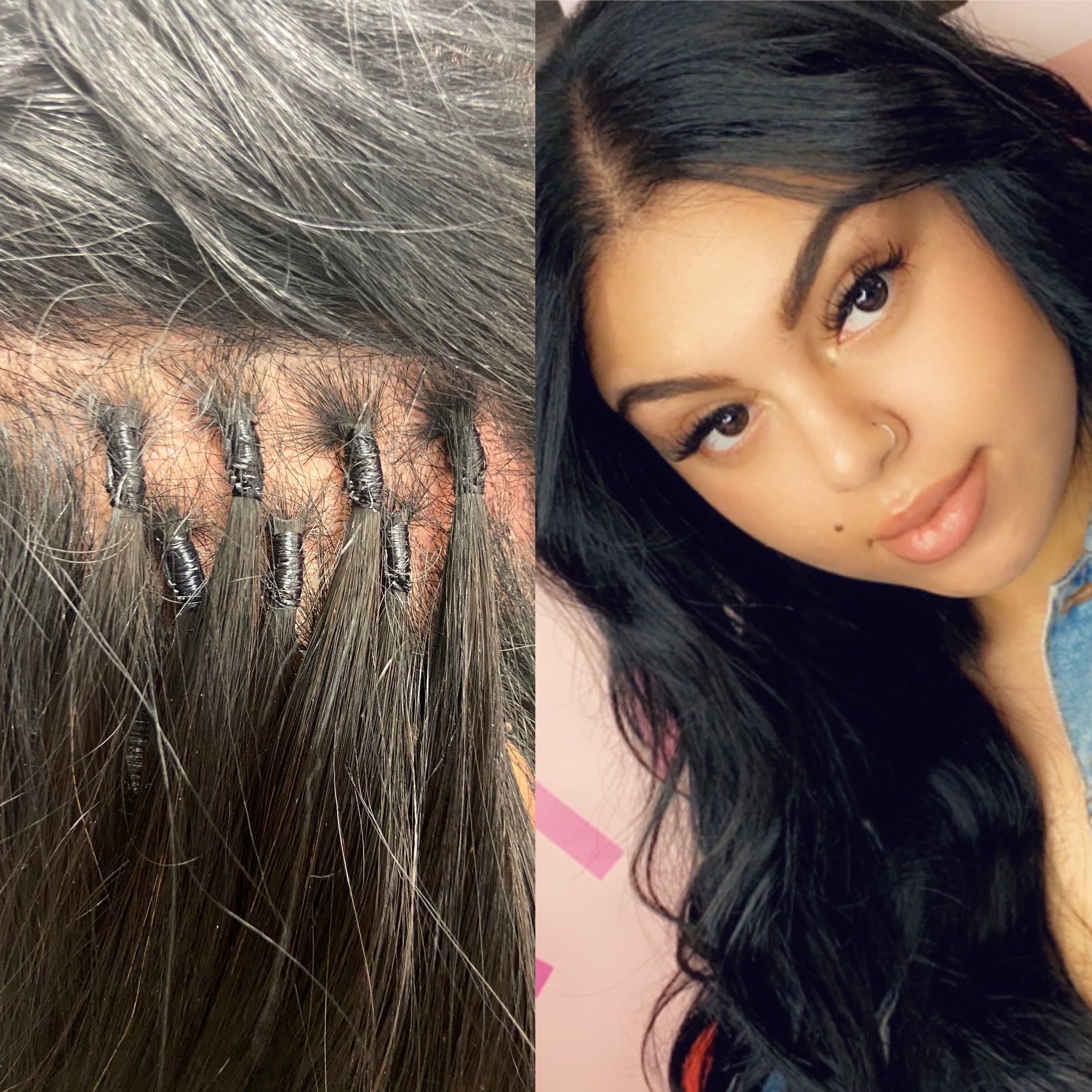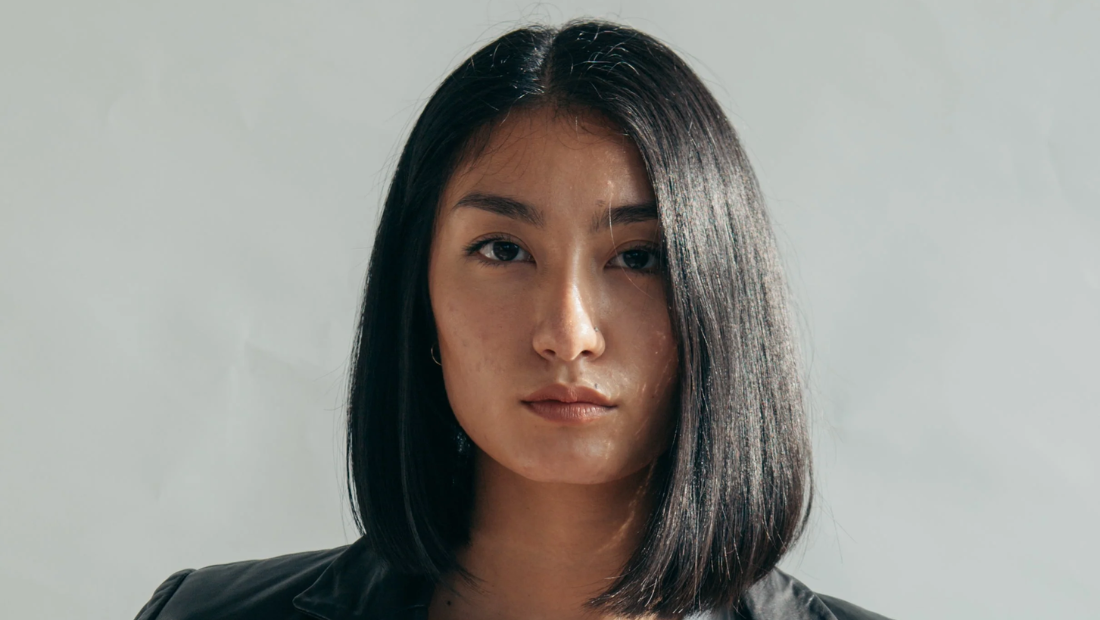Brazilian Knots Pros and Cons: What You Need to Know
Brazilian Knot Hair Extensions have been popular for many years not only in Brazil, but in many salons throughout the United States. We specialize in all types of hair extensions, but we pass on Brazilian Knots since they are very dangerous and cause severe damage to the hair follicle. Over time Brazilian Knot extensions will cause Traction Alopecia which is hair loss due to tension on the hair. Countless clients have come in immediately after application to have these extensions removed. The clients have complained about the pain they cause from headaches to intense pulling on their own hair, just look at the below picture of one of our clients' hair and the immense pulling around the extension and scalp irritation. This is just one example, but this blog is to help you to stay away from this application.


Brazilian Knot Extensions and Traction Alopecia
Any hair extensions that are applied improperly or with too much tension can lead to Traction Alopecia, a condition where hair is lost due to pulling force on the hair follicle. Brazilian Knots, while popular for their natural look and versatility, can be particularly risky for causing this type of hair loss. It's crucial to consider the potential long-term effects before opting for this extension method. It's always recommended to consult with a professional and prioritize the health of your hair. too heavy on your hair, or placed too close to your scalp can lead to traction alopecia Brazilian Knot Hair Extensions have undeniably been a trendsetter in the world of hair extensions. However, it's critical to weigh the pros and cons before taking the plunge. While Brazilian Knots offer a unique and natural-looking extension option, they come with their fair share of risks. One major concern is the potential for Traction Alopecia, a condition that causes hair loss due to excessive tension on the hair follicles.
Before with Brazilian Knots which were removed and we added individual Keratin Extensions
The Brazilian Knots take 10 times the amount of hair that the hair follicle can support, they are placed too close to the scalp, and the elastic thread that wraps around the hair completely breaks the hair. There is no proper weight distribution and they are applied in clumps of hair! The client below entered our salon in immense pain, we removed the Brazilian Knots carefully by razoring through the elastic thread without cutting into her hair. Once removed her scalp had red sores, and it took a few hours for her head to feel normal.

Keratin Bond Hair Extensions are a Better Option
We then added a strand-by-strand extension technique which are much smaller strands than the Brazilian Knots and we placed them safely away from the scalp so her hair moves and flows naturally. The stylist that applied the Brazilian Knots told her to take Ibuprofen until they start to loosen, this is radical and gives hair extensions a bad name! No extension should cause the amount of pain this client experienced and we strongly recommend you steer clear of these types of hair extensions.
How Are Brazilian Knot Extensions Applied?
The installation process of Brazilian knot extensions is intricate and requires precision from a skilled stylist to ensure a seamless application. Initially, your natural hair is thoroughly washed and conditioned to prepare it for the extensions. The skilled stylist then carefully sections your hair into small, manageable parts. Using a specialized hook, a small strand of extension hair is pulled through a section of your natural hair. This process is repeated, creating tiny knots that secure the extension strands in place. Each knot is perfectly crafted to blend seamlessly with your natural hair, ensuring a natural look and feel.
Once the knots are created, the stylist checks for comfort and correct placement to avoid any potential tension on the scalp. This attention to detail during the installation process is crucial to achieving the desired outcome without causing damage to your natural hair. Remember, finding a qualified professional is essential to ensure that the knots are applied correctly and comfortably.

Free Consultations
In the end, you should do your research and go to a reputable salon that gives you a proper consultation explaining which types of hair extensions will suit your hair best. Maintaining the health of your hair and scalp is paramount - so ask questions and feel completely comfortable with your decision. Come visit us at Noelle Salon of Melrose, Massachusetts near Boston.
Pros and Cons of Brazilian Knot Extensions
When considering Brazilian knot extensions, it's important to weigh their advantages against potential drawbacks. On the pro side, these extensions offer a lightweight feel with a nearly invisible appearance, creating a natural look that many women desire. The versatility of Brazilian knots allows for various styling options, whether you want to wear your hair down or in an updo. Additionally, they can last for several months with proper care, making them a long-term solution for those looking to enhance their hair.
However, there are significant cons to consider as well. The installation process can be time-consuming, and it requires a skilled stylist to avoid improper application. There's also a risk of tension on the hair follicles, which can lead to discomfort and even traction alopecia if not done correctly. Regular maintenance appointments are necessary to keep the extensions looking their best, which can add to the overall cost of this hair extension method. Balancing these pros and cons is essential for making an informed decision.
Natural Look and Feel, Lightweight, Customizable (Pros)
One of the most appealing aspects of Brazilian knot extensions is their natural look. Unlike other extension methods that may leave visible tracks or bulky attachments, the small, discreet knots blend seamlessly with your own hair. This creates a flowing, authentic appearance that allows you to wear your hair confidently without the worry of someone spotting your extensions.
Additionally, Brazilian knots are incredibly lightweight, making them a preferred option for many. This means you won't experience the heaviness or discomfort sometimes associated with other types of hair extensions. You can style your hair freely, whether opting for loose waves or a sleek ponytail, without feeling weighed down.
Customization is another key advantage of Brazilian knot extensions. Your stylist can tailor the application to suit your specific hair type, color, and desired length. This personalized approach means you can achieve the look you want, enhancing your overall hairstyle while ensuring that the extensions work harmoniously with your natural hair. Additionally, it's important to be aware of the exchange policy for these extensions in case you need adjustments.
Installation Time, Not DIY-Friendly, Potential for Tension (Cons)
While Brazilian knot extensions offer numerous benefits, there are also some notable downsides. One major concern is the installation process and time. The process can take several hours, especially if you're opting for a full head of extensions. This time commitment may not suit everyone's schedule, particularly those who prefer quick beauty solutions.
Moreover, Brazilian knot extensions are not suitable for DIY application. This method requires a skilled stylist to ensure that the knots are placed correctly and comfortably. Attempting to apply them at home could lead to uneven DIY results, discomfort, or even damage to your natural hair.
Lastly, there is the potential for tension on the hair follicles. If the knots are applied too tightly or too close to the scalp, this can lead to pain and hair loss over time. It's crucial to consult with a qualified stylist who understands the proper techniques for installation to avoid these issues and protect your natural hair.
What hair types work best with Brazilian knot extensions?
Brazilian knot extensions, also referred to as Italian knot extensions, can be a great option for various hair types, but they tend to work best with medium to thick hair. The technique requires a certain amount of natural hair to securely tie the knots, making it more challenging for those with very fine hair. If you have thick or coarse hair, the knots will blend seamlessly, allowing for a natural look and feel.
It's essential to consult with a stylist experienced in Brazilian knots to determine if this method is suitable for your hair type. If you have fine hair, there may be alternative extension methods that would work better for you, ensuring that your natural hair remains healthy and undamaged. A qualified stylist can assess your individual hair type and recommend the best approach to achieve your desired results while maintaining the integrity of your hair.
How does the cost of Brazilian knot extensions compare to clip-in extensions?
When considering hair extensions, cost is often a deciding factor. Brazilian knot extensions typically have a higher initial cost compared to clip-in extensions due to the time and skill required for installation. While clip-ins can be a more affordable and temporary option, they may not provide the same level of customization and natural appearance that Brazilian knots offer.
To give you a clearer picture, consider the following comparison table:
Extension Type
Average Cost per Installation
Longevity
Maintenance
Brazilian Knot
$500 - $1,500
3-6 months
Every 4-8 weeks
Clip-In Extensions
$100 - $300
Temporary (removable)
Minimal (occasional)
Brazilian knots may require a larger investment upfront, but the long-lasting results and natural look can make them worth the cost for many individuals. In contrast, clip-in extensions offer a budget-friendly alternative that is easy to apply but may not deliver the same level of quality and durability.




